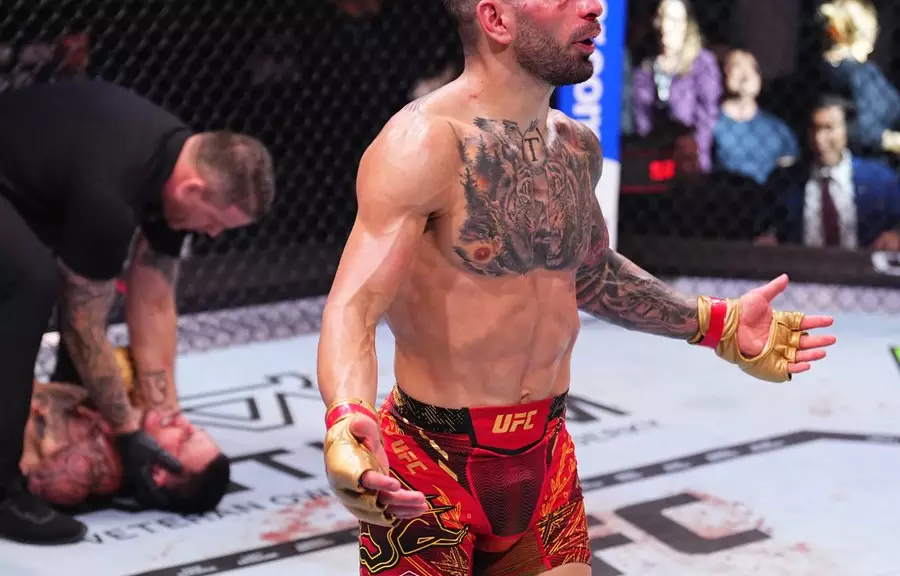In the dynamic landscape of mixed martial arts (MMA), the journey from one weight class to another often comes with both potential and peril. Ilia Topuria’s recent decision to vacate his UFC featherweight championship and ascend to the lightweight division has sparked considerable interest and debate. Topuria, previously undefeated at 16-0, aims for the opportunity to challenge the elite fighters in one of the sport’s most competitive tiers. However, the lightweight champion, Islam Makhachev, has voiced his reluctance to accept a fight against another former featherweight, questioning the merit of such a matchup.
Rizvan Magomedov, Makhachev’s manager, has underscored the importance of legitimacy in the lightweight rankings. In his opinion, Topuria must first prove himself against well-established lightweights before being considered for a title shot. He proposed that a showdown between Topuria and notable fighters like Dustin Poirier or Charles Oliveira would better determine Topuria’s status in the new weight class. The rationale here is clear: without facing formidable opponents who have already established themselves at lightweight, Topuria’s ascent could be perceived as unwarranted. This sentiment brings an intriguing layer to the ongoing discourse regarding the criteria for title contention.
Makhachev’s reign as lightweight champion is marked by significant milestones; he has defended his title four times, two of which came against Alexander Volkanovski, a former featherweight champion. These encounters showcase Makhachev’s prowess and highlight his willingness to take on challengers from different classes, but the nature of the competition is critical. The lightweight division is notorious for its complexity, featuring fighters who possess a diverse range of skills and fighting styles. Thus, the call for Topuria to fight established lightweights first is not just a precaution but a necessary strategy to maintain the integrity of title shots.
Topuria’s trajectory began on a high note with a knockout victory over Jai Herbert, signaling his intent to make waves in the lightweight division. However, his absence from significant lightweight bouts since then has raised questions about his readiness for a title fight. Significant wins over fellow former champions like Volkanovski and Max Holloway solidify his credentials in the eyes of many fans, yet some skepticism remains. Can he sustain this momentum against dedicated lightweights? That remains to be seen. The challenge for Topuria lies not just in maintaining his knockout power but also in adapting to the new challenges presented by seasoned lightweights, something that he has yet to exhibit fully.
As the landscape of the UFC continues to evolve, the calls for stringent criteria for title shots reflect broader themes of legitimacy and fairness in competitive sports. Top fighters like Makhachev and intelligent management strategies like those employed by Magomedov play pivotal roles in determining who gets the next big opportunity. For Topuria, the path forward involves more than just ambitions and past accolades; it requires a dedicated plan to establish himself firmly within the lightweight division. The stakes are high, and the road ahead promises to be filled with challenges that could redefine his fighting legacy.

